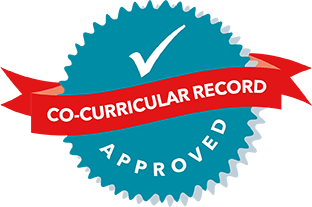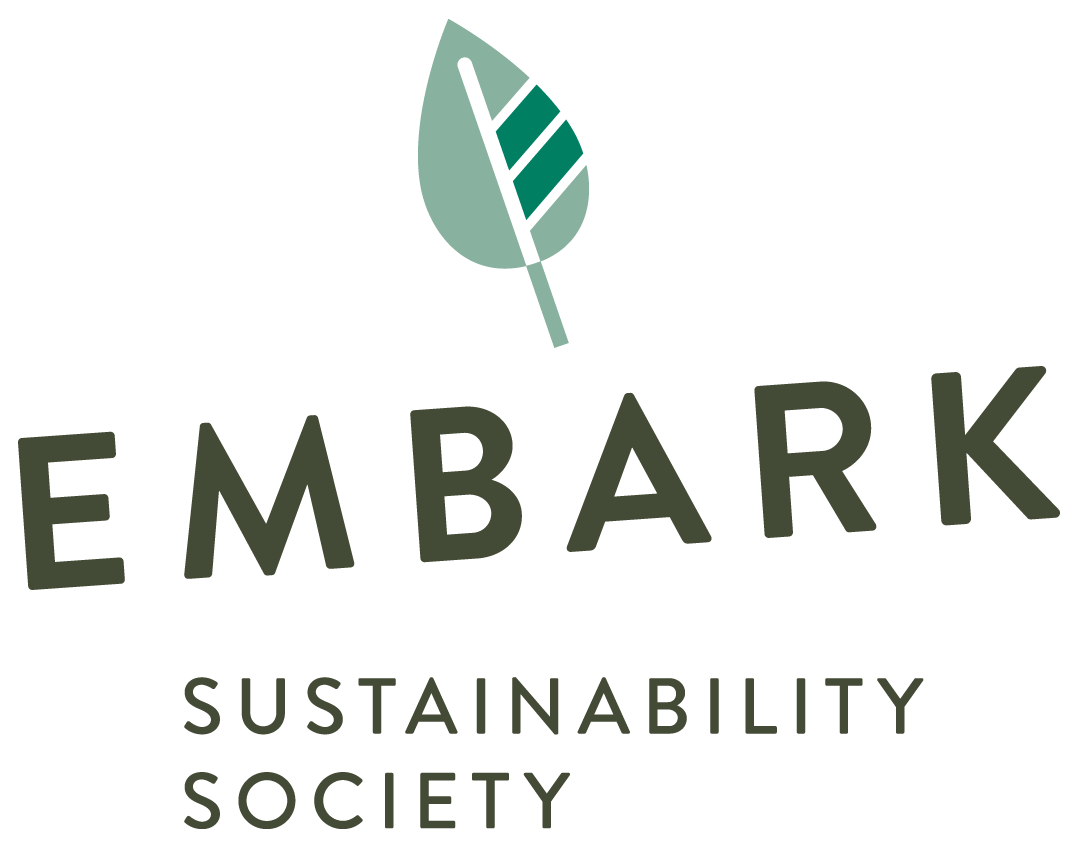Learn how we can address climate change across sectors, communities, and levels of governance
Climate Action Student Collaborative is not currently in session or taking applications. The page below describes how this program was run in past years. Please explore our programs and events pages for up to date educational opportunities relating to climate equity.
Climate Action Student Collaborative
Embark Sustainability and SFU Sustainability are excited to announce the third iteration of the co-run and co-designed sustainability leadership program for students! This co-curricular program will support SFU students in acquiring valuable sustainability career skills, while also counting towards student’s Co-Curricular Record.
The program will begin early January 2022, and is intended for SFU students who are looking to enhance their understanding of climate change and climate justice, gain tangible project management skills, and prepare for their post-SFU careers.

APPLICATIONS ARE NOW CLOSED
About the Climate Action Student Collaborative
The Climate Action Student Collaborative is a comprehensive program that is designed to support the beginning of student exploration of a diverse range of climate action topics. It is meant to be flexible, in order to enable students to complete the program components at a pace that works for their unique needs.
Participants in the Climate Action Student Collaborative will:
- Explore the meaning of climate action through self-paced online modules, including readings, activities, and individual assignments;
- Learn about project management and change leadership through a climate action lens
- Think about climate action critically through an equity and climate justice lens
- Meet like-minded peers in live, virtual dialogue sessions
- Prepare to work on climate action projects with others
What we are looking for in Spring 2022 participants:
- An enthusiasm to learn about the different forms climate action can take in different contexts, and an excitement to contribute to addressing them
- Good time management skills and ability to balance academic and extracurricular commitments
- Ability to work independently and stay motivated in a self-paced environment
- A strong team player, willing to work cooperatively and respectfully in a small team-based setting with other participants.
What is Climate Action?
Effectively addressing climate change requires all of us, working across sectors, communities, and levels of governance, to take action at a level that is equal to the urgency of the crisis we are confronted with.
Climate action involves a diverse range of activities meant to limit further climate change (mitigation) and prepare for unavoidable impacts that are already being felt (adaptation). We can undertake these activities and actions at various levels (e.g., personal, community, municipality, nation-state, and international).
The Climate Action Student Collaborative will focus on the design of climate action at the local and organizational level. We will analyze climate action through an intersectional lens, which centres the stories and innovation of communities who have been marginalized due to climate change, environmental degradation, and socio-economic indicators such as race.
BEFORE APPLYING
FAQ’s
Are there any core topics?
This part of the program will focus on the considerations that go into the planning and implementation of climate action initiatives at a local / organizational level. It provides an introduction to project planning and management, systems change initiatives, and climate justice within the context of climate action planning.
The following topics, among others, will be covered in the program:
- Project life cycle, from planning to implementation and evaluation;
- Collaboration, relationship and trust building;
- Complexity and systems thinking; and
- Climate justice, including Indigenous and disability justice.
Am I eligible to take this program?
In order to be eligible for this program, you must:
- Be a current undergraduate or graduate student at SFU
- Have at least a foundational knowledge of the causes and impacts of anthropogenic climate change.
(This program will not be providing participants with information about the science of climate change, therefore it is expected that participants will have a basic understanding of climate change. If you are applying as a grad student, please be aware that this program was designed to provide an introduction to climate action, justice, and project management.)
How will the program be delivered?
Meetings for this program will be hosted virtually until further notice.
The program will be delivered through the online components described below, including three required and two optional group meetings (one group meeting may be held in person – TBC).
- Online modules (required program component)
- Asynchronous learning activities (i.e., activities that are self-paced and not completed in real-time with other participants and the program coordinators) will be provided on Canvas. This includes reading materials, videos, and short reflection activities.
- Five modules will be released bi-weekly: January 19, February 2 and 16, March 2, and March 16. Participants can complete these modules at their own pace within the Spring 2022 semester.
- A final assignment will be due on April 5, 2022.3 live/synchronous online group meetings (required program component)
2. Five live/synchronous online group meetings with other participants and program coordinators (three are a required program component and two are an optional program component)
- Meeting #1 (required): Tuesday, January 18, 2022 — 5 PM to 7 PM
- Meeting #2 (required): Tuesday, February 1, 2022 — 5 PM to 7 PM
- Meeting #3 (optional): Tuesday, February 15, 2022 — 5 PM to 6 PM
- Meeting # 4 (optional): Tuesday, March 1, 2022 — 5 PM to 6 PM
- Meeting # 5 (required): Tuesday, March 15, 2022 — 5 PM to 7 PM
Work at your own pace within the semester
Modules 1 to 4 can be completed at your own pace throughout the Spring 2022 semester
- Each module will have a recommended completion date to help guide participants through the program in a timely manner, however, it is not required that the modules be completed by these recommended deadlines.
Will it cost anything?
No, this program is free of charge!
What is the time commitment for this program?
|
Program Component |
For Program Completion | Estimated Time Needed for Completion |
|
Online modules The online modules will be released bi-weekly on Canvas on the following dates: January 19, February 2 and 16, and March 2 |
Required | 4 modules x approximately 3 hours each = 12 hours |
|
Final Assignment The final assignment will be released on Canvas on March 16 |
Required | The final assignment will take approximately 4 hours to complete |
| 3 live/synchronous group meetings | Required | 3 meetings x 2 hours each = 6 hours |
| 2 mid-term live/synchronous group meeting | Optional | 2 meeting x 1 hours = 2 hours |
Total time commitment: approximately 24 hours
What happens if I miss one of the required group sessions due to unexpected circumstances?
We know that participants might need to miss a required live session due to unforeseen circumstances, especially in these uncertain times. If this happens to you as a participant, please email casc-admin@sfu.ca as soon as possible to discuss how this session can be made up.
CONTACT
If you have anything on your mind
Have questions? Please send an email to casc-admin@sfu.ca (your email will be sent to program coordinators in both Embark Sustainability and the Sustainability Office).
STAY UPDATED
Never miss what’s going on at Embark Sustainability
